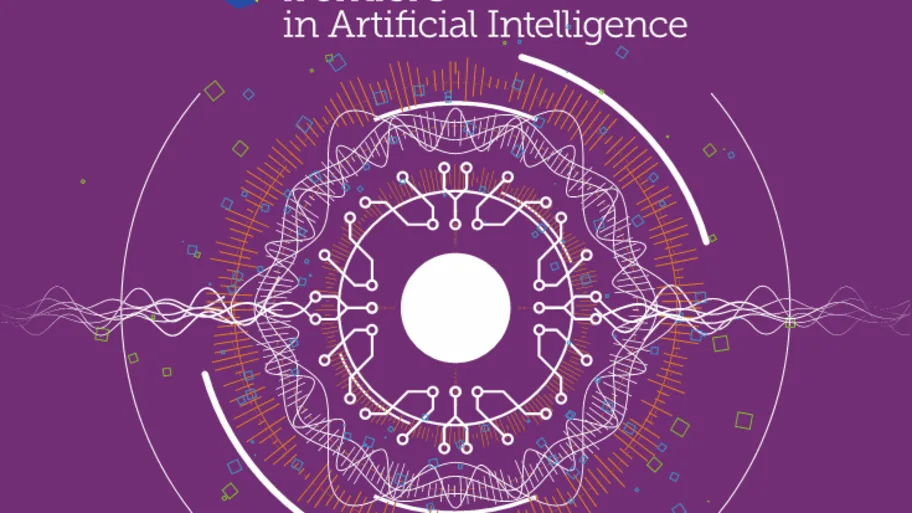
- Science news
- Frontiers news
- Professors Liu and Hartung appointed to lead Frontiers in Big Data and Frontiers in Artificial Intelligence
Professors Liu and Hartung appointed to lead Frontiers in Big Data and Frontiers in Artificial Intelligence

Big Data and Artificial Intelligence (AI) are reshaping our world, revolutionizing the way we work and live. Last year, Frontiers launched two journals to provide a home for experts working in these fields: Frontiers in Big Data and Frontiers in Artificial Intelligence. The journals publish a broad range of topics in respectively Big Data and AI by bridging gaps between disciplines.
Knowledge Aware Recommendation Systems and Probabilistic perspectives on brain (dys)function are now open for submissions. Sign up for article alerts to keep up with the latest research published in_Frontiers in Big Data_ or Frontiers in Artificial Intelligence.
Two new FCEs appointed
We are proud to announce that we have now appointed two Field Chief Editors, who will work with their communities to foster collaborations between and allow the continued growth of the journals. Frontiers in Big Data will be led by Huan Liu, Professor of Computer Science and Engineering at Arizona State University. Frontiers in Artificial Intelligence will be led by Thomas Hartung, Professor of Toxicology at Johns Hopkins University.
Frontiers in AI and Frontiers in Big Data complement each other
Huan Liu and Thomas Hartung explain their motivation and vision for Frontiers in Big Data, Frontiers in Artificial Intelligence and their natural interplay. Huan Liu: “(Big) Data Sciences and AI are two growing disciplines that need each other. Big Data is a key element in machine learning. AI can help to handle big data in ways that are efficient and intelligent. Their natural confluence will simulate novel problems and unprecedented solutions.” Thomas Hartung adds: “AI is about making sense of Big Data, which is relevant in all sciences. It complements hypothesis-driven research by moving Data Mining from a fishing expedition to an intelligent query of assembled facts.”
From learning to leading new research
Huan Liu witnessed first-hand the fast transformations of the field of Big Data and Data Mining, recounting his experiences in the early 90s while teaching at the National University of Singapore: “Data Mining began being seen as a new interdisciplinary field and we started teaching it without a textbook. It was exciting knowing I was part of new area of study that I could help shape.” Thomas Hartung too recalls several moments in his life that sparked his interest in the field of AI, first reading the science fiction books of Isaac Asimov, and later the defeat of chess world-champion Garry Kasparov by IBM’s Deep Blue chess computer: “A quite passionate chess player and early programmer and student of informatics, this was really a milestone I recall.”
Leading with a strong community of scientists
Collaborations between international experts are key in advancing core research and applications of Big Data and AI. Huan Liu: “Frontiers in Big Data benefits from an incredibly strong community of scientists from across a very diverse range of disciplines and perspectives. Scientists with these strengths are open-minded, inclusive, forward-looking, and innovative. Many of them dare to go out of their comfort zones to take up challenges that have no ready solutions and develop algorithms to make use of big data.”
Thomas Hartung: “Scientists on the editorial board supporting Frontiers in Artificial Intelligence are foremost experts in their disciplines. AI is such a cross-cutting technology – it is fascinating how this disruptive and enabling technology fertilizes so many disciplines. Researchers contributing to this area demonstrate true courage. They cross those boundaries to collaborate with each other and find answers to common questions from sharing data and algorithms, to quality assurance, to ethics.”
Collaborative, open and interdisciplinary research
As Field Chief Editors of Frontiers in Big Data and Frontiers in Artificial Intelligence, Huan Liu and Thomas Hartung, respectively, envision building on the excellent start that both journals have already made, bringing in more themes and fostering fruitful collaboration across communities. We congratulate Huan Liu and Thomas Hartung on their new roles and look forward to working with them and the editorial boards on publishing open and interdisciplinary research to scale up the Big Data and AI revolution.

Huan Liu
Huan Liu
Fellow of ACM, AAAI, AAAS, and IEEE, Huan Liu is a Professor of Computer Science and Engineering at Arizona State University. His research interests are in data mining, machine learning, social computing, and artificial intelligence, investigating interdisciplinary problems that arise in many real-world, data-intensive applications with high-dimensional data of disparate forms such as social media. He is a founding organizer of the International Conference Series on Social Computing, Behavioral-Cultural Modeling, and Prediction.

Thomas Hartung
Thomas Hartung
Thomas Hartung’s work focuses on a paradigm shift in toxicity testing to improve public health. He is Professor of Toxicology, Molecular Microbiology and Immunology at Johns Hopkins Bloomberg School of Public Health, Baltimore, and Professor of Pharmacology and Toxicology at the University of Konstanz, Germany. He was the head of the European Center for the Validation of Alternative Methods of the European Commission (2002-2008) and is now the Director for the Center for Alternatives to Animal Testing.
Frontiers journals lead in citations and rank in top Impact Factor and CiteScore percentiles. See full analysis






